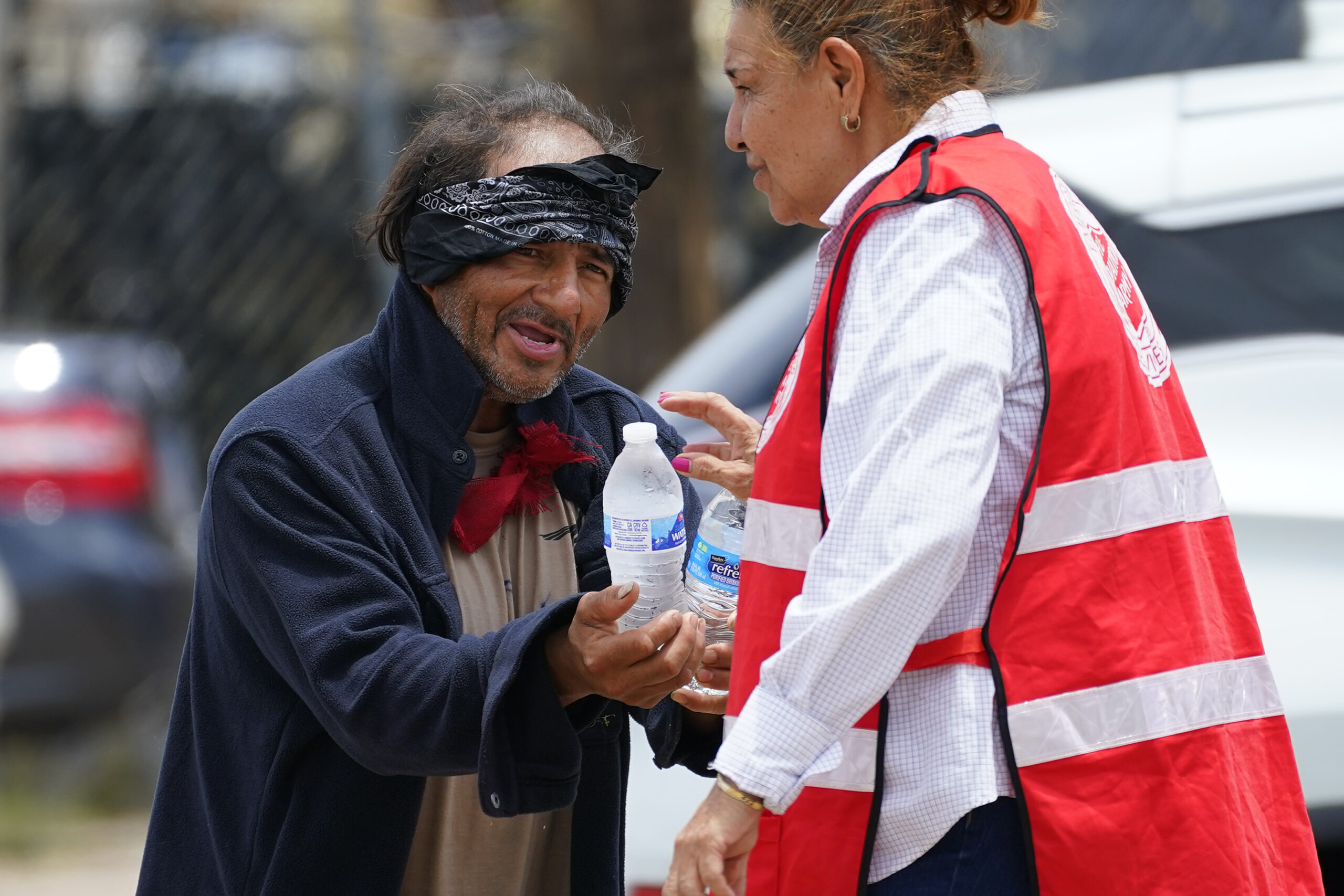The bipartisan “Extreme Heat Emergency Act,” H.R. 3965, from Reps. Ruben Gallego (D-Ariz.), Sylvia Garcia (D-Texas) and Mark Amodei (R-Nev.) would ad
The bipartisan “Extreme Heat Emergency Act,” H.R. 3965, from Reps. Ruben Gallego (D-Ariz.), Sylvia Garcia (D-Texas) and Mark Amodei (R-Nev.) would add high temperatures to the Federal Emergency Management Agency’s list of major disasters. That would open the door to federal aid.
“Every summer, we are experiencing hotter and longer heat waves in the Valley,” said Gallego, who represents large swaths of Phoenix, in a statement about the bill.
“Despite the too often deadly effects of this heat, Arizonans are left to deal with the impacts themselves, and it is draining their resources,” said Gallego.
Disasters that currently qualify for FEMA aid include hurricanes, tornadoes, floods, tidal waves, earthquakes and snowstorms, among other calamities.
But Amodei noted in a statement: “Extreme heat kills more people in the U.S. than all other natural hazards and extreme weather events.”
On average, there are 702 heat-related deaths each year in the United States, according to the Centers for Disease Control and Prevention’s Heat & Health Tracker. In 2022, 425 deaths were linked to heat in Maricopa County, Ariz., according to the county Department of Public Health.
The legislation came up Sunday on CNN’s “State of the Union.” Host Jake Tapper asked Arizona Democratic Sen. Mark Kelly weather FEMA should treat heat like another natural disaster.
“Yes, I think maybe in some cases. I haven’t taken a look at his legislation, the specifics on it, and I will. But that could be an approach here,” Kelly said.
Kelly also linked the heat to climate change. “We have got to continue to work towards reducing the amount of carbon dioxide we’re putting in the atmosphere,” he said.
Sen. Tammy Duckworth (D-Ill.) similarly addressed climate change when asked about the legislation on NBC’s “Meet the Press.” However, she didn’t seem keen on expanding FEMA’s role.
“I don’t think so,” Duckworth said. “But I will tell you, one of the things that we can do to cool the Earth back down is to transition into greener energy alternatives.”
Republicans and conservative voices have been questioning whether the severe weather and extreme heat are tied to climate change.
“Climates adjust over time, but we’re going to say that man did it now? Nope, not there,” said Rep. Byron Donalds (R-Fla.) when asked about the record temperatures.
Earlier this year, Gallego reintroduced the “Excess Urban Heat Mitigation Act,” H.R. 2945, with Rep. Bonnie Watson Coleman (D-N.J.), to authorize Department of Housing and Urban Development grants. Sen. Sherrod Brown (D-Ohio) is sponsoring a Senate companion, S. 1379.
The legislation would authorize $30 million each year through fiscal 2030. At least 75 percent of the money would go to low-income and disadvantaged communities. No Republican has signed on.
Watson Coleman, Gallego and several other Democrats are also supporting H.R. 4314, the “Stay Cool Act,” which includes provisions for cooling centers, health studies and grants. The legislation would also revise public housing rules to make sure people have access to air conditioning.
Lawmakers in the past have also introduced legislation to push the Occupational Safety and Health Administration to protect workers from heat.
It now remains to be seen whether conditions will propel committees to prioritize heat legislation. The White House, in the meantime, announced a research effort with money from the Inflation Reduction Act. The administration also plans a “National Heat Strategy.”
Nico Portuondo contributed to this report. This story was reported and written by E&E News reporter Rebekah Alvey.
www.politico.com
